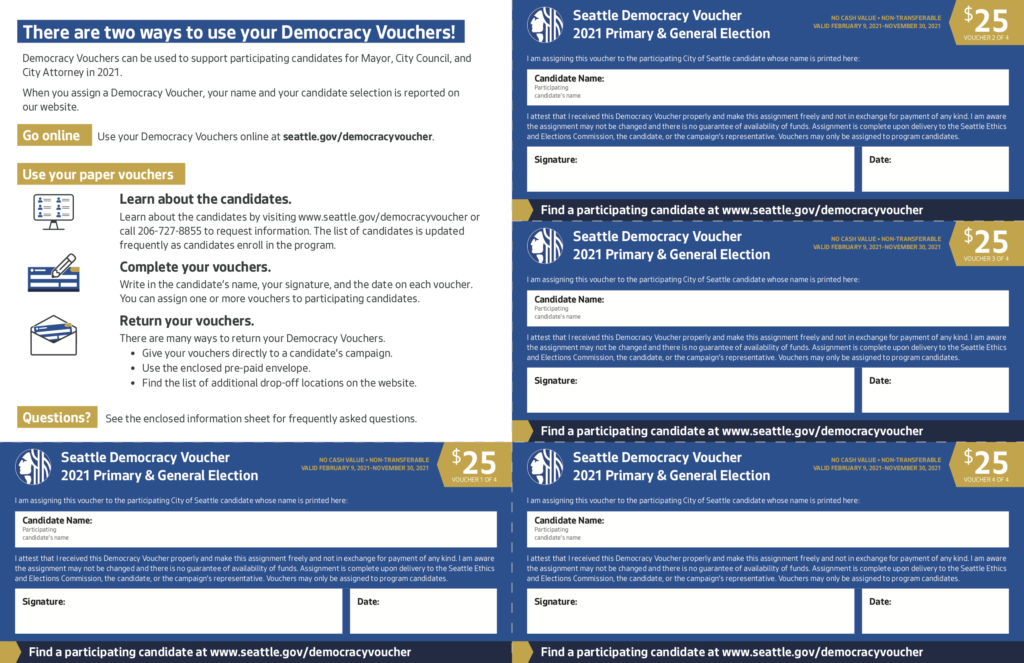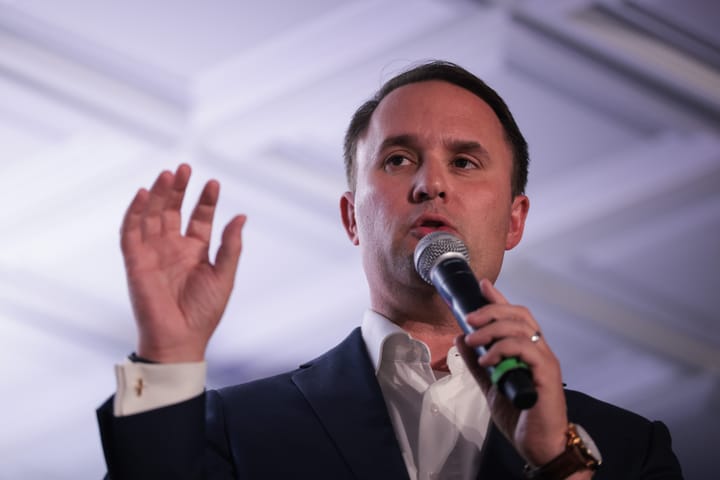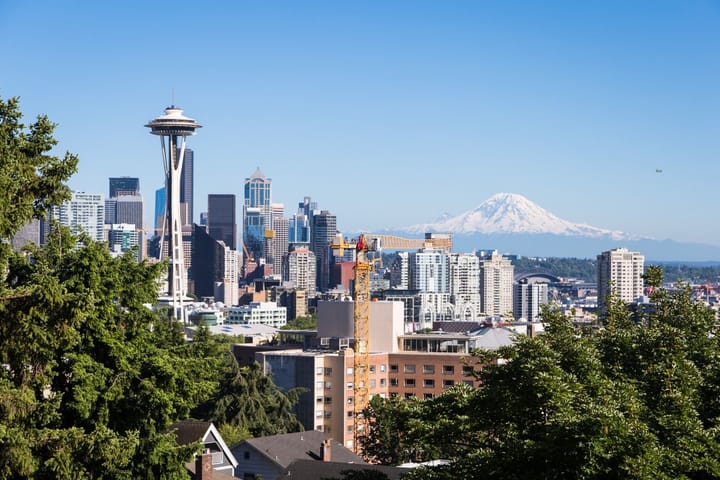This week, the Seattle Ethics and Elections Commission will begin mailing democracy vouchers to every Seattle voter. With these vouchers, residents can help to finance the campaigns of candidates running for local office, including candidates running for mayor.
Democracy vouchers are an important step to leveling the playing field in municipal elections. In American politics—and especially in local elections—money is king. Candidates fundraise so they can hire field organizers, develop campaign literature, and conduct outreach to voters throughout the city. More often than not, the candidate with the most money wins.
But while money in local elections has historically been raised from a small number of wealthy donors, the Democracy Voucher Program is changing the rules of the game. By giving every Seattle resident money to spend on the candidate(s) of their choice, proponents of the Democracy Voucher Program hope to increase the number of contributors, create a more representative pool of donors, and transform the way citywide elections are funded.
For the last couple years, we have been studying Seattle’s progressive experiment in local democracy.
After just two election cycles, our research shows that the Democracy Voucher Program is changing the way local campaigns are run—not just in Seattle, but across the country.
In a recent report from the McCourt School of Public Policy at Georgetown University, we identify the impact of the Democracy Voucher Program on elections in Seattle. After just two election cycles, more Seattle residents are participating in the campaign finance system and the donor pool has become increasingly diverse.
In the election before the program was established, fewer than 1.5 percent of Seattle residents gave money to a local political candidate. These donors tended to be wealthier, white, and live in high-income neighborhoods.
But in the 2019 election cycle, the participation rate rose dramatically. More than 8 percent of Seattle adults participated in the campaign finance system by using their vouchers or making a cash contribution. By comparison, the share of residents donating in Seattle’s election is over seven times higher than the share donating in New York City’s public financing system.
The program has also created a much more diverse pool of contributors. With a voucher in hand, every Seattle resident—rich and poor, Black and white, young and old—has money to spend in local elections on the candidates of their choice. Compared to those who give cash, Seattle residents who use their vouchers look much more like voters in local elections.
All eyes will be on Seattle with the upcoming mayoral election. For the first time, Seattle residents will have vouchers to spend on candidates running for mayor. We expect the program will continue to broaden donor coalitions while diversifying the field of candidates. Potential candidates will no longer need to rely on existing lists of donors or wealthy friends to fund their campaigns. Instead, they can start knocking on doors. Every voter in Seattle has $100 in vouchers to spend. Now, it’s up to candidates to convince voters to spend it on them. The nonpartisan primary elections for mayor and city council races are on Aug. 3 and the general election will be on Nov. 2.
With enough grassroots support, candidates can raise all the money they need from local residents through the Democracy Voucher Program. In 2019, participating general election candidates received, on average, about $115,000 in voucher funds. This year, candidates for mayor can collect up to $800,000 in voucher funds.
While more and more Seattle residents are participating in the program, people outside Seattle are paying close attention, too. Advocates for fair elections in other cities, including Albuquerque, New Mexico and Austin, Texas, are monitoring Seattle as they consider their own public financing programs. Seattle has emerged as a laboratory of democracy for other cities working to create fairer elections.
Interest in the program extends beyond city politics. Fair elections advocates are eyeing a voucher program, modeled on the experience of Seattle, for federal elections, as well. The H.R. 1 campaign finance reform, ethics, and voting access bill before the U.S. House of Representatives calls for pilot projects to implement a voucher program in three states.
As residents of Seattle head into the third election cycle with democracy vouchers, we are heartened by the impact of the program. When the envelopes from the Seattle Ethics and Election Commission begin to arrive next week, we encourage Seattle residents to participate in this important experiment in democracy.

Brian J. McCabe is an Associate Professor of Sociology at Georgetown University. Jennifer Heerwig is an Associate Professor of Sociology at Stony Brook University.



